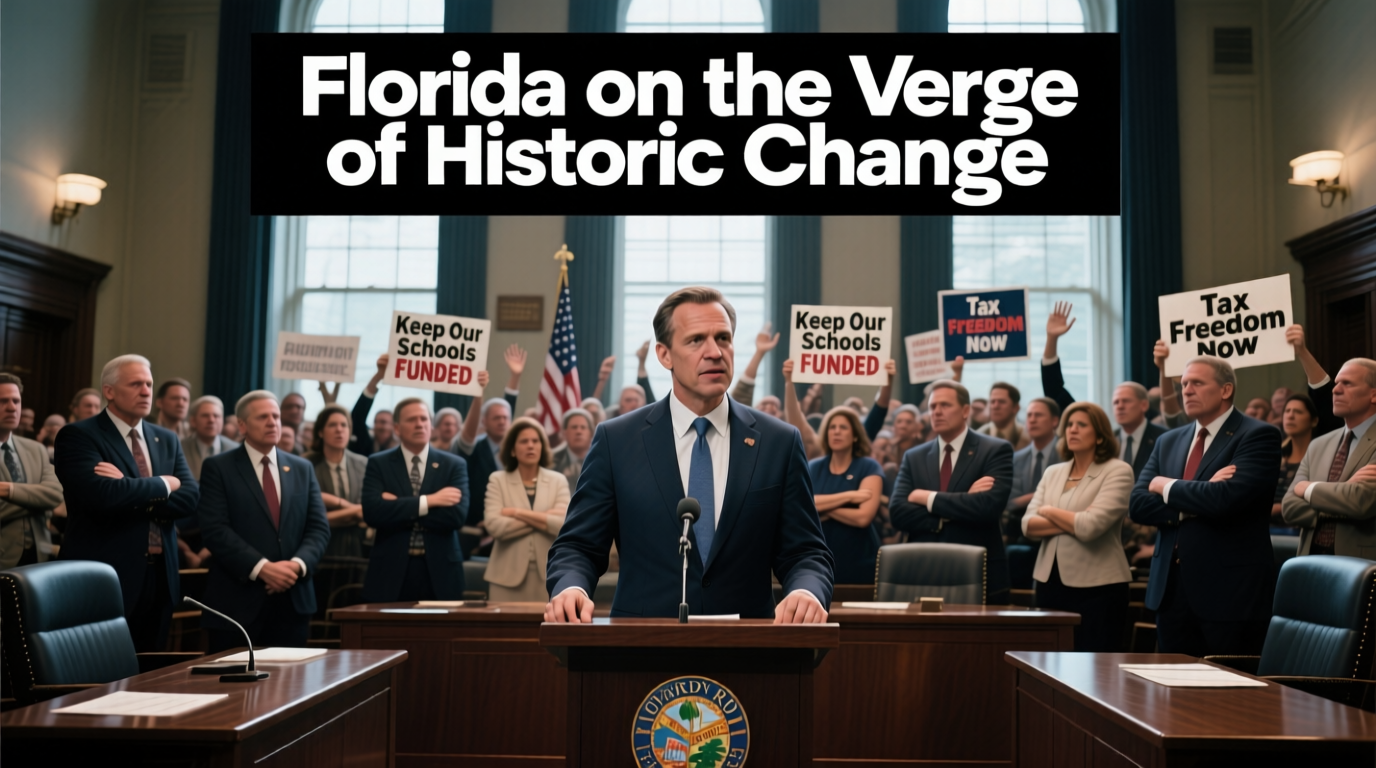
Your house, tax-free? DeSantis' bold promise that everyone is debating
Florida on the Verge of Historic Change: DeSantis Proposes Eliminating Property Tax, but Faces Strong Resistance
By Master – Miami, Florida
Amid an increasingly polarized political climate, Governor Ron DeSantis has launched a bold proposal that could redefine the relationship between citizens and the state in Florida: the complete elimination of the property tax. This move, if implemented, would represent one of the most significant tax changes in the state’s recent history and has already raised red flags in key sectors of the establishment.
The proposal, announced during a press conference in Tallahassee, is based on three pillars: reducing the tax burden on households, returning control of assets to their owners, and limiting the power of local governments to impose discretionary taxes. “Citizens should have the absolute right to maintain what they build with their own hands and their savings,” DeSantis stated. “It’s not fair that every year the state comes to your door demanding money simply for owning your home.”
Currently, the property tax in Florida ranges between 0.8% and 2.5% of a home’s assessed value, a burden that has been increasing in recent years due to rising real estate values. DeSantis’ proposal contemplates the gradual elimination of this tax, financed through a combination of budget surpluses, administrative efficiencies, and a restructuring of state revenues, including a possible increase in the sales tax—a measure that has not yet been publicly detailed.
Who opposes it?
Despite the enthusiasm of many homeowners, the initiative has encountered strong opposition, primarily among local governments and public sector unions.
Mayors in cities such as Miami, Jacksonville, and Orlando have warned that eliminating the property tax would jeopardize essential services such as public schools, firefighters, police, and infrastructure maintenance. “This tax funds more than 60% of many cities’ budgets,” said the mayor of Gainesville, who called the proposal “a promise without a plan.” “If the state takes on that burden, it must show exactly where the money will come from. If not, we’re playing with fire.”
For their part, teachers’ and city employee unions have launched social media campaigns warning of possible cuts to staff and services if the measure is passed without a clear revenue replacement plan. “We don’t want any more cuts to education or emergency services,” said a spokesperson for the city workers’ union. “Pretty promises don’t feed anyone or put out fires.”
There are also voices within the Republican Party itself expressing caution. Some lawmakers fear that the proposal, while popular with voters, could destabilize local finances and create even greater dependence on the state government. “We support tax cuts, but not at the expense of bankrupting cities,” said a state senator during a legislative session.
A Debate on Ownership and Power
Beyond the numbers, the proposal has sparked a profound debate about the role of government in citizens’ lives. For many, homeownership should be an inalienable right, not a privilege subject to annual taxes. “In what other area of life are you forced to pay to own what’s yours?” asked one Tampa homeowner during a community meeting. “If I buy a car, a television, or a piece of land, it’s mine. Why is my house any different?”
However, critics insist that public services come at a cost, and that eliminating one of the most stable sources of funding could shift the burden to other sectors, especially low-income consumers, if the sales tax increase is used.
What’s next?
The proposal now moves to the State Capitol, where it will face intense scrutiny. Although DeSantis enjoys a Republican majority in both chambers, not everyone is convinced that the timing is right. Modified versions of the plan are expected to be introduced in the coming weeks, possibly with a more gradual or limited focus on certain taxpayer groups, such as retirees or low-income families.
Meanwhile, the debate continues. In a Florida that is increasingly attractive to those seeking economic freedom, the question is not only whether the property tax can be eliminated, but whether it should be – and who will pay the ultimate price.





